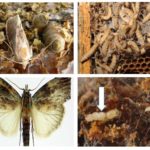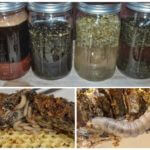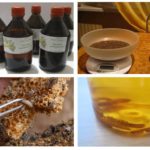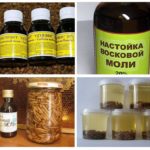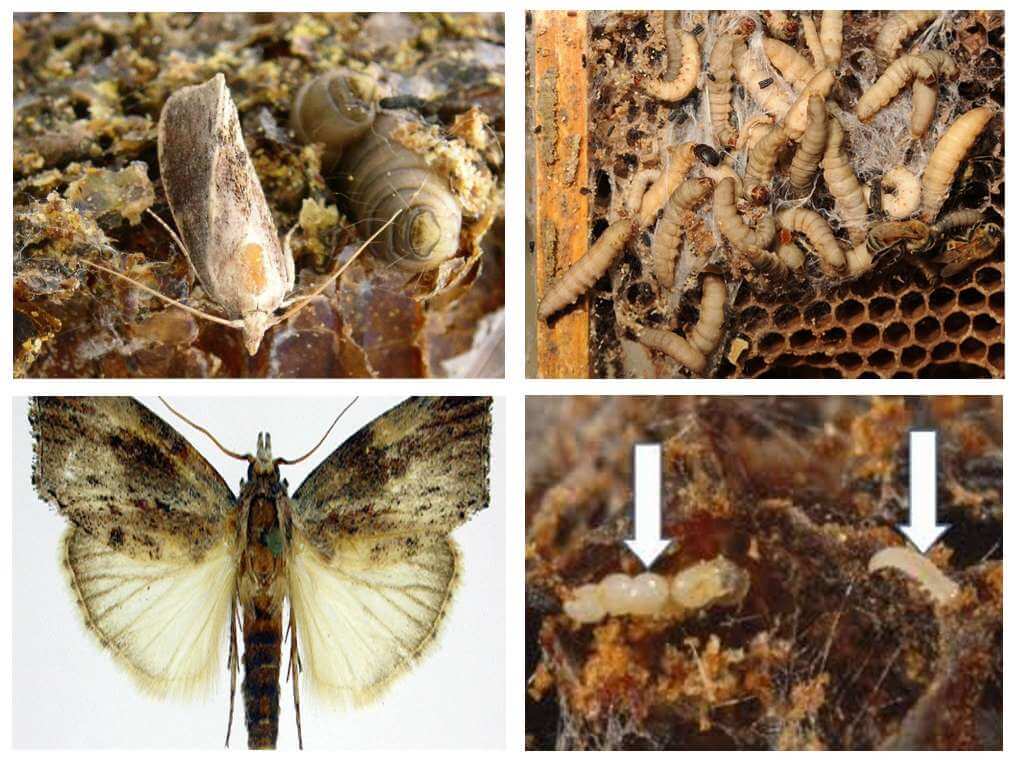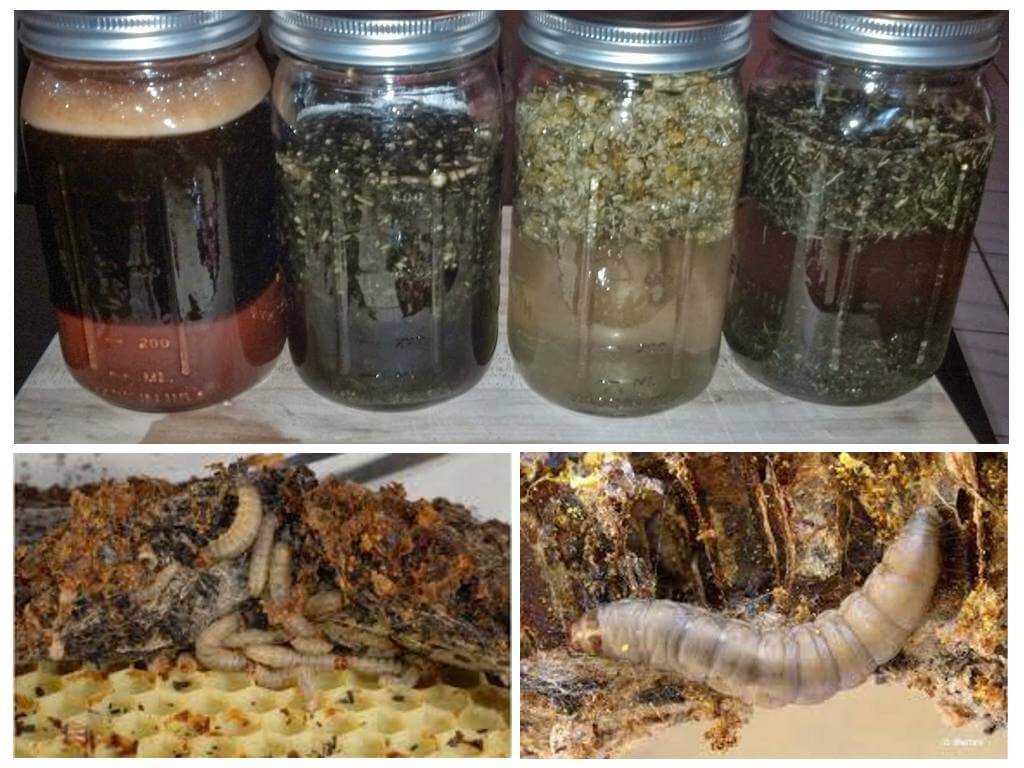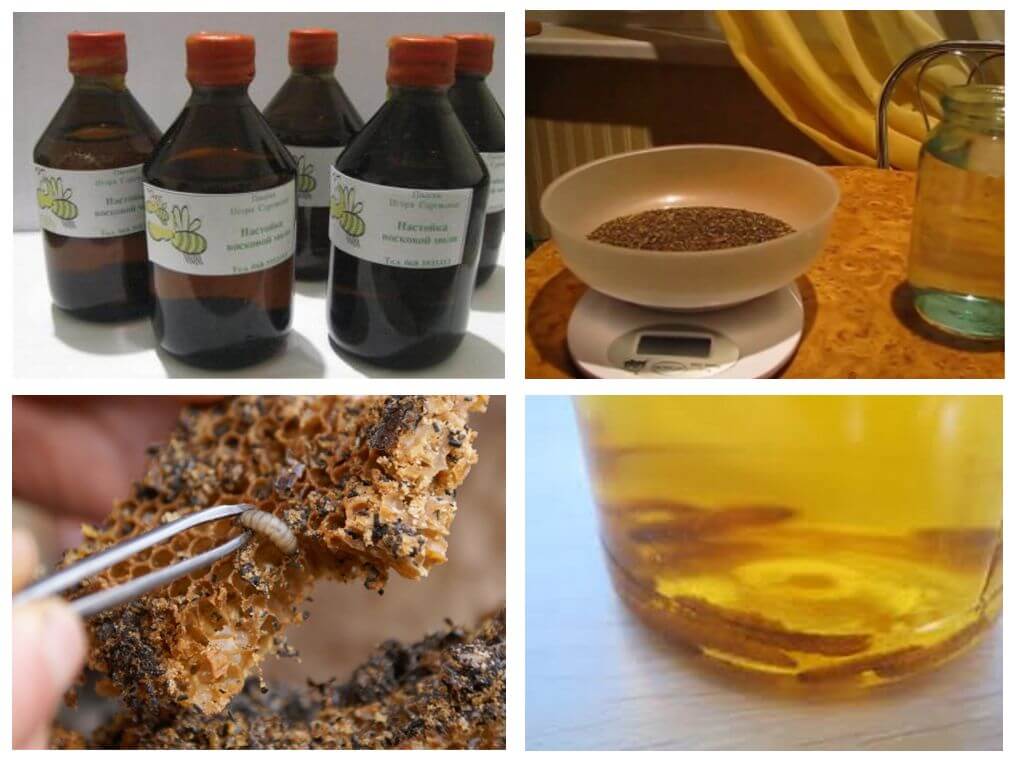Bee moth tincture: what it treats and how to use it
Content
- Moth fireworm
- Tincture
- Tincture of wax moth
- Tincture of wax moth
Bee moth, called wax moth or by fire cattle - the worst parasite in the apiary. Moth larvae feed on all bee products. A large population in the hive becomes the cause of the death of the bee colony. However, the insect gained fame not because of the harm, but because of its healing properties.According to the manufacturers, the use of bee moth tincture can replace the complex treatment of the whole organism. The tool heals from tuberculosis, cancer, gastrointestinal diseases, respiratory, excretory, reproductive system. Is there any scientific background for such allegations, or is this a marketing move by entrepreneurial beekeepers - let's understand.
Peculiarities of life activity of the bee moth
Bee moth - It is a butterfly from the family of moths, which lives everywhere, where there are bee farms. In adulthood, the insect has a non-coherent gray color. The length of females reaches 30-35 mm, males 15-20 mm. The similarity with the home moth appears in the shape of the head.
Interesting!
Bees, who always stand guard over their hives and do not allow strangers, the bee moth is not defined as an enemy. Butterflies and their offspring exude odorous substances that are similar to the scent of the bees themselves. Therefore, they can easily penetrate the hives, lay eggs and eventually push out the true "masters."
The oral apparatus of an adult butterfly is not intended for feeding.The moths meet their energy needs by accumulating in the larval stage. The main purpose of adults is reproduction. Mating occurs outside the hive. Then the female penetrates the hive and lays her eggs in it.
Appeared newborns moth larvae for the first time they eat honey. The fledged youngsters go on a more solid diet and eat literally everything that is in the hive: honeycombs, pargu, wax, submor. With a lack of food cannibalism tends to occur. After the caterpillar gains the desired mass, it goes into the pupation stage. Excessive infection of the hive leads to the fact that the bees leave their home, or die.
The benefits and harms of the bee moth are the subject of discussion and controversy. And if the insect's harmfulness is obvious, then the benefit has not yet been proven by anyone. Healing properties of unrecognized official medicine means are in great doubt. It seems plausible version according to which, enterprising people spread the legend about the effectiveness of the wax moth and sell the tincture with floating caterpillars of unknown origin to trusting citizens.
On a note!
The larvae of the bee moth are very similar to the larvae of the barn moth, codling mothmill fruit mothnot having any relation to the bees. Only a specialist can determine the species.
What is the secret of bee moth tincture
By itself, the bee moth does not show healing properties. Prepare a folk remedy from the larvae that have not yet reached the phase of pupation. According to the manufacturers, the larvae contain a special enzyme, called cerrazy, which has a destructive effect on tuberculosis microbes. Taking into account the fact that the younger generation feeds exclusively on beekeeping products, the composition of the larvae is enriched with all the beneficial substances, which together are contained in all bee products:
- vitamin complex;
- protein, lipids;
- nucleotides, peptides;
- trace elements;
- enzymes;
- lipids.
Tincture of wax moth possesses a wide spectrum of action:
- antimicrobial;
- immunomodulatory;
- absorbable;
- antiviral;
- bronchodilator;
- healing;
- tonic;
- antioxidant;
- soothing;
- antiparasitic.
Based on such a complex effect, the use of bee-moth tincture is no less diverse: tuberculosis, the postoperative period, diabetes, male and female infertility, sexual impotence, hypertension, varicose veins, weakened immunity, cancer treatment, asthma, insomnia, gastric ulcer.
Initially, treatment with bee moth was targeted at people with tuberculosis. Over time, in order to reach a wider circle of the target audience, the list of diseases from which the tincture can help, was regularly replenished. Perhaps, there is no such disease that the extract could not beat.
Tincture preparation and dosage
Bee moth tincture and its properties are due to the saturated composition of the larvae. Therefore, to prepare the elixir, you need to use the larvae that have not reached the pupation stage. Raw materials are placed in a glass container and filled with alcohol. The proportions of ingredients depend on the concentration to be obtained.
Folk healers prepare the so-called extract of 10% and 20%, the ratio of larvae to alcohol in them, respectively, 1:10 and 1: 5.After the animals are immersed in alcohol, the container is tightly closed and put in a dark place. The resulting substance must be insisted within a week.
The dosage and the treatment itself are “prescribed” by the same beekeeper, the manufacturer. In case of moderate diseases, it is usually recommended to use 2-3 drops for every 10 kg of weight three times a day. In severe forms of tuberculosis, the dosage is almost tripled.
Beekeepers, part-time doctors, strongly recommend drinking bee moth tincture courses. After a month of taking the drug, a 30-day pause is made, and then the molar therapy is resumed. Minimum course - 6 months, ideal - 1 year. Therefore, one bubble tincture is indispensable. At least they need 6-7 pcs. The cost of each varies from 500 to 700 rubles.
It is forbidden to use tinctures to children under 14 years old, women during lactation and pregnancy, as well as in the presence of allergic reactions to bee products. For the rest of the people who are not on this list, the use of an alcohol solution with floating caterpillars is not forbidden. With moderate consumption of tincture will not harm the body.
History of use of tincture
According to legend, the tincture of the extract of the bee moth was used as early as the 17th century for the treatment of tuberculosis, and the first studies of the properties of the moth belong to Mechnikov. The question arises, if the tincture is so widely used in traditional medicine, then why did people massively die from tuberculosis until the 20-30s of the last century. Mechnikov was really engaged in the study of tuberculosis, namely, anti-tuberculosis immunity. About his research wax moth extract history is silent.
Next, the relay race exploring the unique properties of the moth was transferred to Metalnikov and Zolotarev. The most significant studies were conducted by S. A. Mukhin. According to some data, he is a homeopath, according to another therapist, in the third sources he is a cardiologist. In childhood, the doctor himself suffered from tuberculosis. The tincture of the moth, which the father of the future scientist purchased from the healers, helped him escape from a dangerous illness.
Mukhin devoted his whole life to the study of the wax moth and revealed that with its help it is possible not only to cure tuberculosis, but also caverns, as well as dissolve scars and speed up the recovery process after a heart attack.Everything would be very plausible, but in medical circles the name of the doctor is not known to anyone. There is also no mention of S. A. Mukhine, a homeopath in Wikipedia.
The enzyme cerrase, which adherents of molar therapy hope for, is not listed in any authoritative catalog and its formula is not familiar to biologists. But reviews after treatment with tincture of moth can be found without difficulty.
It is possible to bring a “scientific base” under anything, as long as someone believes in it. With the same success, you can argue the treatment of worms, which made the American researcher. Helminthotherapy is no less popular in America than in the Russian expanses of wax moth treatment. According to the scientist, parasites are an essential element in the human body. Without them, the entire biological chain is violated, which leads to allergic reactions, asthma.
The only thing that can be explained by the effect of treatment with bee moth tincture is the placebo effect. When a person strongly believes that the use of the drug will lead him to recovery, a self-healing mechanism is triggered in the body. This phenomenon has not been fully studied, but a number of experiments confirm that in more than 60% of cases the pacifier tablets really help to defeat the ailment.

